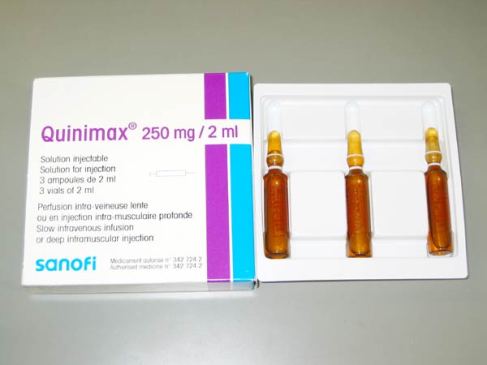1987, my close-of-service in Peace Corps. After three years, my volunteering was complete. I went for a small celebration to the Hotel 2 Fevrier in Lomé with my girlfriend Armelle to see Martin Scorsese’s “The Mission.” As we filed out, I could tell some kind of achiness was lurking beneath my skin. I reminded myself that I had taken my weekly dose of chloroquine phosphate. Should be OK. Probably just a mini-flu that if I get to bed early I could nip in the bud.
We returned to our friend’s house in Lomé’s quiet Kodjoviakope neighborhood near the Ghana border. A fitful night of sleep, and when I tried to awake the next morning, it was clear my lethargy was due to a rapidly rising fever. The first rise was like a small roller coaster. I probably hit 102, remained there for a couple of hours, and then the fever dropped to normal, leaving me more tired.
Our friend, a kind and funny German doctor named Joachim, watched over me, uncertain what I might have. He initially suspected pneumonia. But I sensed he was just saying that to avoid using the “M” word. After all, I was done with Peace Corps, the US government no longer saw me as their responsibility, and Joachim knew my options were somewhat limited if I had malaria. But he remained vigilant to my signs. That evening, when the fever began to rise again, Joachim didn’t need a blood test. It was the classic arc of malaria: fevers that spike and fall in the course of several hours, leaving the body wrung out with fatigue. This time though, it was more like the kind of roller-coaster I never have had any desire to ride, the kind that will pull G-forces, the kind that metaphorically will smack you with a 106 fever. If measures are not taken, malaria can spread to the brain, and that’s something you definitely want to avoid: cerebral malaria kills.
Rounds 2 through 6 of the fever were killers. I remember little of those two days. What I recall is this:
The hallucinations were both beautiful and scary. I kept having a recurring fantasy about a machine that would fix anything. I kept thinking on and off through the fever about that “fix-it machine,” and as the notion crossed my mind, it would be followed by the most exotic colorful patterns that would turn dark and eerie.
At one point in the early morning on the downward slope of one of my fever spikes, I found myself on all fours, vomitting in the shower. Joachim appeared in my field of vision with a butterfly net. He used to catch geckos to give to his son in Germany when he travelled home. (Rumor had it that Joachim actually brought ganja back to Germany from Togo, buried in the litter of the gecko cage, but that was never confirmed). Joachim stood there with his net, bent over at the waist, and sollicitous of my situation, but not feeling he needed to get deeply involved at that point in my sickness, opting instead to just let me get it all out. “Ca va?” he inquired in the Togolese French that he normally spoke. “Ca va?” he repeated. I turned my head momentarily and nodded an unconvincing “yes.” And then returned to focusing on the drain.
When I had a moment in the low part of the fever curve to think, I asked Joachim what I had done wrong. I slept under a bed net. It wasn’t an insectiside-treated bed net like the kind Amy Costello reported on here. But I never slept without it. And I took my chloroquine regularly. Joachim’s explanation was simple: chloroquine resistant mosquitoes were migrating from Gabon north to the coast along the Gulf of Guinea.
The final thing I remember was the needle going into my butt. Joachim had gone to the pharmacy for Quinimax: 2 mls of yellow thick fluid the color of unhealthy urine. It was so viscuous that once injected, it sat there like a small dome on my buttock as it slowly joined my system.
The next fever spiked lower. And with the second injection, they stopped altogether. Joachim had a Togolese cook, a luxury in my eyes. The first solid meal I ate was one the cook prepped: liver and onions. It shouldn’t have tasted good right then. But it did. And I was grateful.

